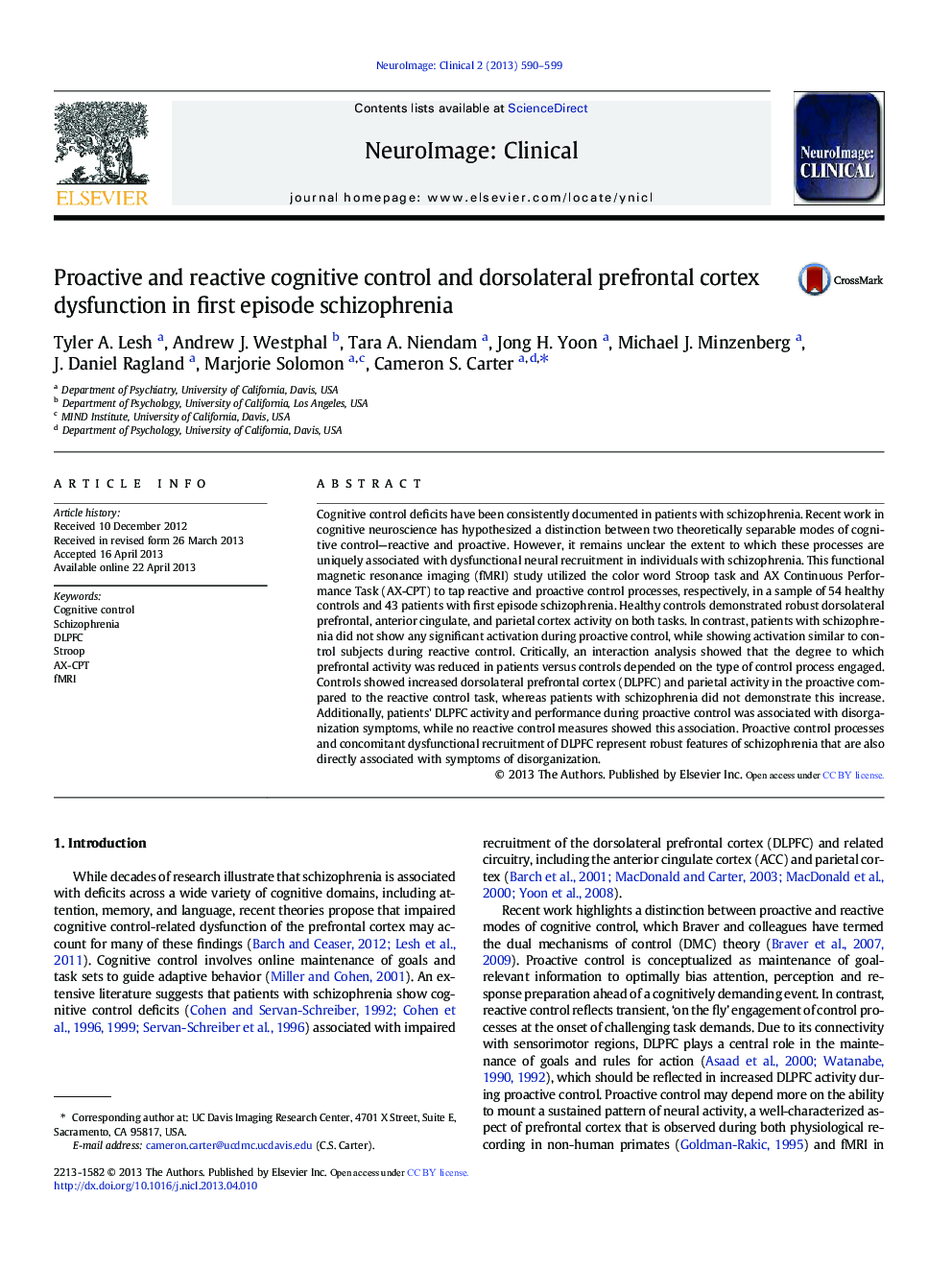| Article ID | Journal | Published Year | Pages | File Type |
|---|---|---|---|---|
| 3075541 | NeuroImage: Clinical | 2013 | 10 Pages |
•Cognitive control and fronto-parietal recruitment are disrupted in schizophrenia.•Schizophrenia patients show hypoactivation during proactive not reactive control.•DLPFC activity was associated with disorganization only in proactive control.•Proactive control deficits may reflect a more robust marker of disease pathology.
Cognitive control deficits have been consistently documented in patients with schizophrenia. Recent work in cognitive neuroscience has hypothesized a distinction between two theoretically separable modes of cognitive control—reactive and proactive. However, it remains unclear the extent to which these processes are uniquely associated with dysfunctional neural recruitment in individuals with schizophrenia. This functional magnetic resonance imaging (fMRI) study utilized the color word Stroop task and AX Continuous Performance Task (AX-CPT) to tap reactive and proactive control processes, respectively, in a sample of 54 healthy controls and 43 patients with first episode schizophrenia. Healthy controls demonstrated robust dorsolateral prefrontal, anterior cingulate, and parietal cortex activity on both tasks. In contrast, patients with schizophrenia did not show any significant activation during proactive control, while showing activation similar to control subjects during reactive control. Critically, an interaction analysis showed that the degree to which prefrontal activity was reduced in patients versus controls depended on the type of control process engaged. Controls showed increased dorsolateral prefrontal cortex (DLPFC) and parietal activity in the proactive compared to the reactive control task, whereas patients with schizophrenia did not demonstrate this increase. Additionally, patients' DLPFC activity and performance during proactive control was associated with disorganization symptoms, while no reactive control measures showed this association. Proactive control processes and concomitant dysfunctional recruitment of DLPFC represent robust features of schizophrenia that are also directly associated with symptoms of disorganization.
